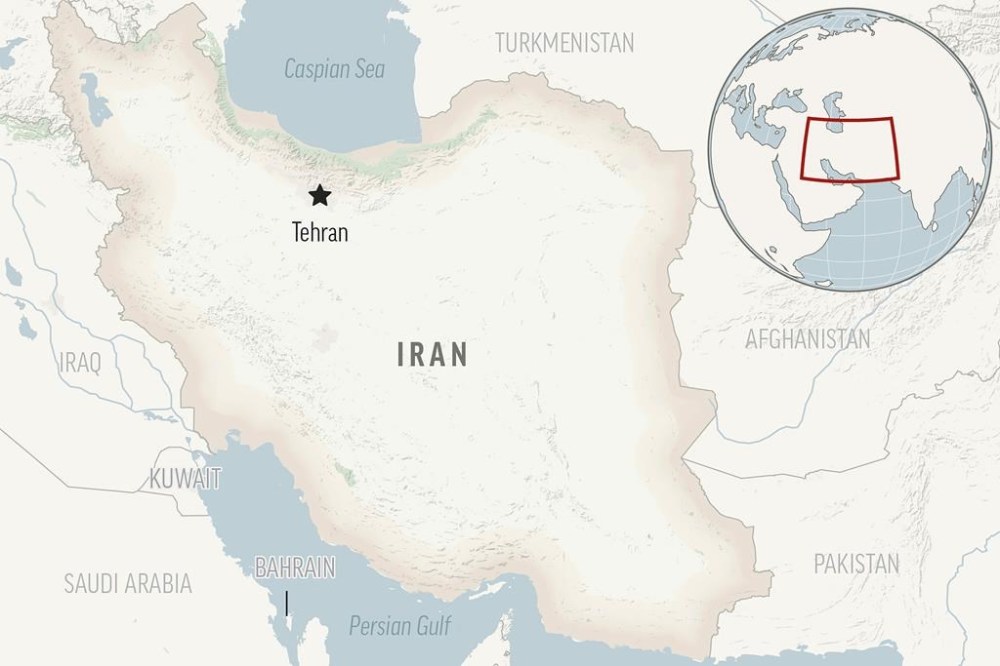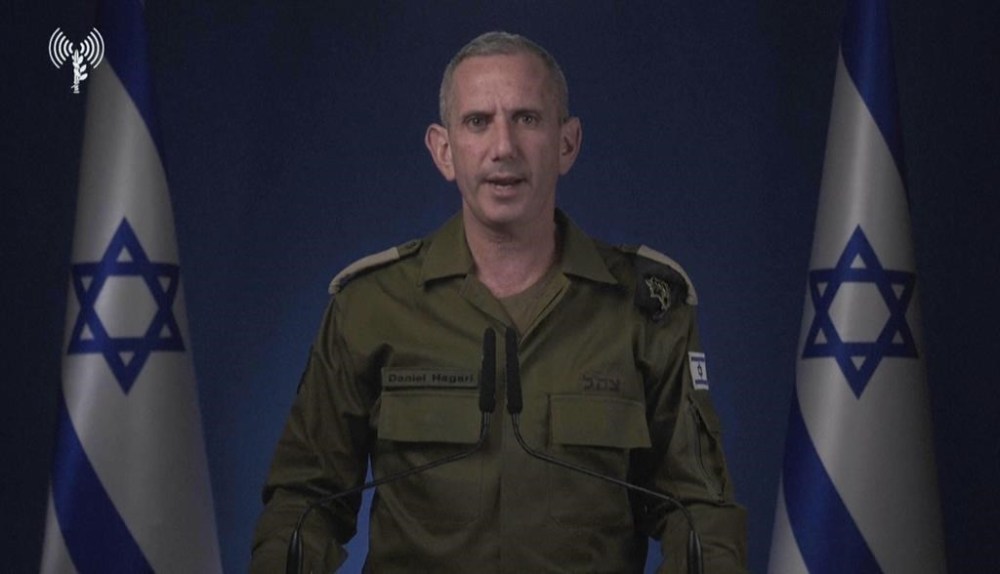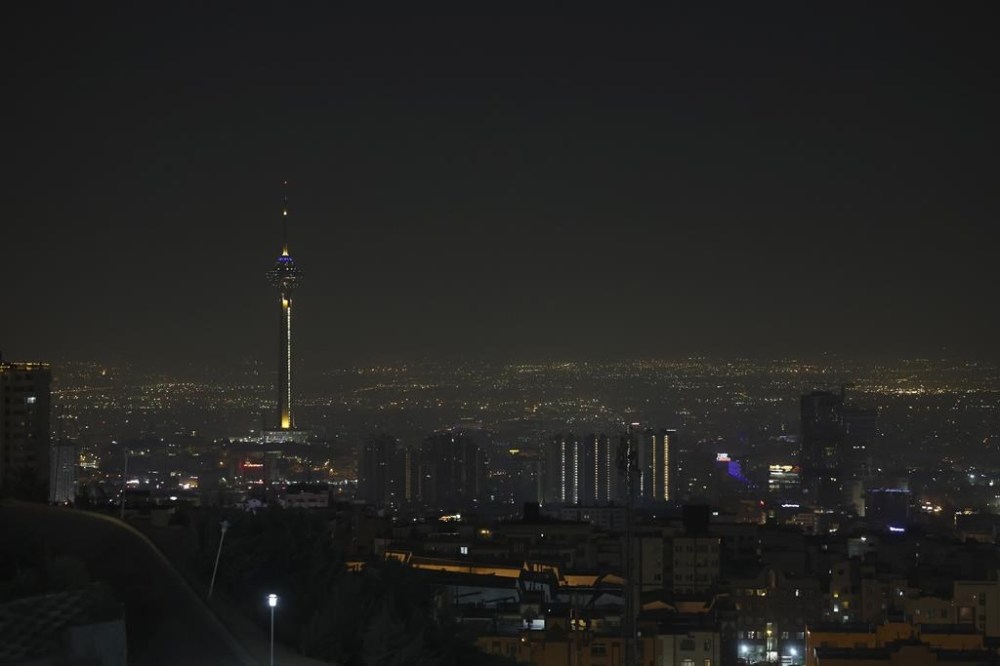TEL AVIV, Israel (AP) — Israel attacked Iran with a series of pre-dawn airstrikes Saturday in what it said was a response to the barrage of ballistic missiles the Islamic Republic fired upon Israel earlier in the month.
The Israeli military said its aircraft targeted facilities that Iran used to make missiles fired at Israel as well as surface-to-air missile sites. There was no immediate indication that oil or missile sites were hit — strikes that would have marked a much more serious escalation — and Israel offered no immediate damage assessment.
Explosions could be heard in the Iranian capital, Tehran, though the Islamic Republic insisted they caused only “limited damage” and Iranian state-run media downplayed the attacks.

Still, the strikes risk pushing the archenemies closer to all-out war at a time of spiraling violence across the Middle East, where militant groups backed by Iran — including Hamas in Gaza and Hezbollah in Lebanon — are already at war with Israel.
“Iran attacked Israel twice, including in locations that endangered civilians, and has paid the price for it,” said Israeli military spokesperson Rear Adm. Daniel Hagari in a video statement.
“We are focused on our war objectives in the Gaza Strip and Lebanon. It is Iran that continues to push for a wider regional escalation.”
Photos and video released by Israel showed Prime Minister Benjamin Netanyahu, wearing a casual black jacket, and Defense Minister Yoav Gallant meeting with military advisors and others in a conference room at a military command and control center in the Kirya military base in Tel Aviv.
The strikes filled the air for hours until sunrise in Iran. They marked the first time Israel’s military has openly attacked Iran, which hasn’t faced a sustained barrage of fire from a foreign enemy since its 1980s war with Iraq.
It came as part of Israel’s “duty to respond” to attacks on it from “Iran and its proxies in the region,” Hagari said.
“The Israel Defense Forces has fulfilled its mission,” Hagari said. “If the regime in Iran were to make the mistake of beginning a new round of escalation, we will be obligated to respond.”
The United States warned against further retaliation, indicating that the overnight strikes should end the direct exchange of fire between the Israel and Iran.
Nuclear facilities and oil installations were all seen as possible targets for Israel’s response to Iran’s Oct. 1 attack, before U.S. President Joe Biden’s administration won assurances from Israel in mid-October that it would not hit such targets, which would be a more severe escalation.

Iran’s military said the strikes targeted military bases in Ilam, Khuzestan and Tehran provinces, without elaborating.
Iran’s state-run media acknowledged blasts that could be heard in Tehran and said some of the sounds came from air defense systems around the city. But beyond a brief reference, Iranian state television for hours offered no other details.
Iran’s move to quickly downplay the attack may offer an avenue for it not to respond, averting further escalation.
Iran fired a wave of missiles and drones at Israel in April after two Iranian generals were killed in an apparent Israeli airstrike in Syria on an Iranian diplomatic post. The missiles and drones caused minimum damage, and Israel — under pressure from Western countries to show restraint — responded with a limited strike it didn’t openly claim.
Dozens were killed and thousands wounded in September when pagers and walkie-talkies used by Hezbollah exploded in two days of attacks attributed to Israel. A massive Israel airstrike the following week outside Beirut killed Hezbollah’s longtime leader, Hassan Nasrallah, and several of his top commanders.
On Oct. 1, Iran launched at least 180 missiles into Israel in retaliation, sending Israelis scrambling into bomb shelters but causing only minimal damage and a few injuries.
Netanyahu immediately said Iran had “made a big mistake.”
Israel then ratcheted up the pressure on Hezbollah by launching a ground invasion into southern Lebanon. More than a million Lebanese people have been displaced, and the death toll has risen sharply as airstrikes hit in and around Beirut.
Israel and Iran have been bitter foes since the 1979 Islamic Revolution. Israel considers Iran to be its greatest threat, citing its leaders’ calls for Israel’s destruction, their support for anti-Israel militant groups and the country’s nuclear program.

During their yearslong shadow war, a suspected Israeli assassination campaign has killed top Iranian nuclear scientists and Iranian nuclear installations have been hacked or sabotaged, all in mysterious attacks blamed on Israel.
Meanwhile, Iran has been blamed for a series of attacks on shipping in the Middle East in recent years, which later grew into the attacks by Yemen’s Houthi rebels on shipping through the Red Sea corridor.
The shadow war has increasingly moved into the light since Oct. 7, 2023, when Hamas and other militants attacked Israel. They killed 1,200 people, mostly civilians, and took some 250 hostages into Gaza. In response, Israel launched a devastating air and ground offensive against Hamas, and Netanyahu has vowed to keep fighting until all of the hostages are freed. Some 100 remain and roughly a third are believed to be dead.
More than 42,000 Palestinians have been killed in Gaza, according to local health officials, who don’t differentiate between civilians and combatants but say more than half of the dead have been women and children.
___
Gambrell reported from Dubai, United Arab Emirates. Associated Press writers Amir Vahdat in Tehran, Iran; Abby Sewell in Beirut; Lolita C. Baldor, Farnoush Amiri and Zeke Miller in Washington; Adam Schreck in Jerusalem; David Rising in Bangkok; and Aamer Madhani in Wilmington, Delaware, contributed to this report.


